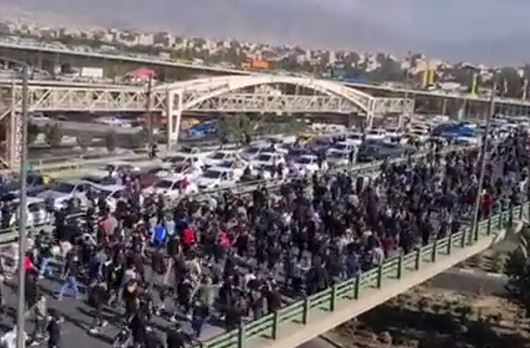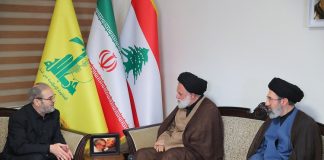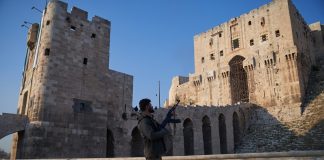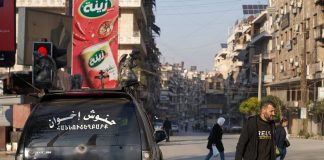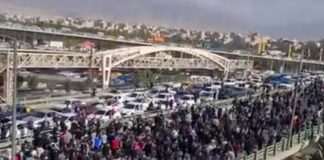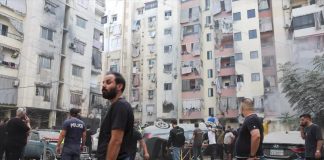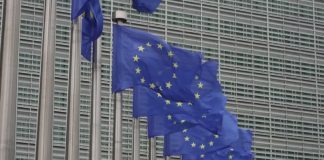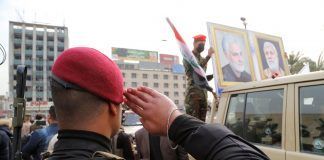By Kayhan Life Staff
Members of the United Nations’s Independent International Fact-Finding Mission on the Islamic Republic of Iran have met with survivors and victims of the protests that erupted in Iran in 2022 and escalated into a national movement watched around the world. The Fact-Finding Mission issued a report on Nov. 27.
Many individuals who were forced to leave Iran are now pursuing justice and accountability from the Islamic Republic for what they describe as acts of repression which amount to crimes against humanity.
During their discussions with the UN Fact-Finding Mission, victims and survivors living in Germany underscored the pressing need for truth, justice, and accountability concerning the human rights violations committed by the Islamic Republic.
The meeting with the UN Fact-Finding Mission involved individuals who had suffered injuries during protests, including those with visual impairments, among other injuries. Some protesters had experienced additional harassment and repression at the hands of government officials because of their gender and sexual orientation.
Several parents and relatives of injured or deceased protesters also took part in the meeting, recounting their experiences of widespread and ongoing repression, which included being denied the opportunity to mourn their loved ones.
The victims also emphasized the government’s restrictions on their daily lives in Iran, marked by extensive surveillance and control.
Prince Reza Pahlavi : ‘The Alternative to the Islamic Republic is the Iranian nation’
In its Nov. 27 report, the UN Fact-Finding Mission reveals that many Iranians who spoke with Mission members had suffered severe injuries, such as total blindness in both eyes and arbitrary detention, and some had faced torture and gender-based violence.
The report also highlights that the victims are not pursuing revenge against those who committed these crimes; instead, they are focused on achieving equality, freedom, and dignity for the citizens of Iran.
Survivors have also voiced their frustration over the absence of effective means to hold the Islamic Republic accountable and emphasized their commitment to continue fighting for justice and accountability, both within Iran and on an international level.
They have urged the global community to take more concrete actions to put an end to the repression of Iranian citizens by the Islamic Republic and to ensure that the regime adheres to its international obligations.
“I do not want to imagine a future where we see the perpetrators of these crimes posting on Instagram. Perpetrators need to be held accountable,” said one of the survivors.
The Mission is withholding the identities of all survivors and victims due to safety issues and concerns about potential retaliation.
The survivors praised the report, and expressed their respect for the courage of those who tirelessly and fearlessly aided them in Iran. This group includes medical professionals and lawyers who, in the process, often face security risks and legal obstacles.
“In this hearing, survivors — including children and young women and men — spoke of their priorities for truth, justice, accountability, and reparations,” said Sara Hossain, Chair of the Fact-Finding Mission. “Their voices and their expectations for action, within Iran and internationally, are key to our taking a victim-centered approach to justice and accountability.”
Viviana Krsticevic, a member of the Fact-Finding Mission, said: “Drawing on insights from victims and experts, we will propose actionable recommendations for the international community, including on victim rehabilitation, promoting accountability and truth-telling processes, and implementing compensation measures. We have gathered thousands of pieces of evidence to support these efforts.”
“It was inspiring to hear survivors speak of their enormous struggles to speak out against injustice and to ultimately reach safety,” said Shaheen Sardar Ali, another member of the Mission. “Their voices remind us of the continued need for solidarity and support to all survivors of the ongoing repression against the 2022 ‘Woman, Life, Freedom’ protestors in Iran.”
The UN Fact-Finding Mission will present its report to the UN Human Rights Council in March 2025. This report will include perspectives from survivors and propose a framework for justice and reparations.
The Independent Fact-Finding Mission was initiated shortly after the violent suppression of citizens by the Islamic Republic during the national movement protests in 2022.
Formed by the UN Human Rights Council in late December 2023, the Mission’s mandate involves investigating and collecting information about the repression experienced by citizens, focusing on women and children during these protests.
The Mission primarily comprises three key members: Sara Hossain from Bangladesh, Shaheen Sardar Ali from Pakistan, and Viviana Krsticevic from Argentina. Sara Hossain serves as the mission chair.
In a report released on March 8, 2024, the Mission asserted that the Islamic Republic had engaged in severe human rights abuses and “crimes against humanity” during its crackdown on the protests in 2022.
A report released three months earlier — coinciding with the second anniversary of Mahsa (Zhina) Amini’s death while in custody of the Morality Police in Tehran and the subsequent protests of the 2022 National Movement – warned of the increasing security and judicial pressures being exerted on women by the Islamic Republic.
The report showed that security forces have escalated their use of physical violence against citizens, mainly through actions such as beating, kicking, and slapping women and girls who are accused of failing to adhere to mandatory hejab laws.
Several videos examined by the Fact-Finding Mission depict women and girls facing such treatment at the hands of Iranian authorities.
The report also noted that the “Hejab and Chastity Bill,” which is nearing final approval from the Guardian Council, proposes stricter penalties for women who violate mandatory hejab regulations. These penalties may include financial fines, loss of employment and educational opportunities, and even lengthy prison sentences.
Another section of the report highlighted that the authorities of the Islamic Republic are employing sophisticated surveillance technologies, such as drones, to enforce stricter regulations regarding the observance of hejab in both public and private areas.
The UN independent Fact-Finding Mission on Iran also pointed out that “meaningful accountability for severe violations of human rights and international law, including crimes against humanity, remains out of reach for victims and survivors, particularly women and children.”
The report added that “unless the government takes action to prevent the worsening of human rights abuses against women and girls, it is unrealistic to expect that victims and survivors will be able to access their fundamental rights and freedoms in a collective and meaningful way that they are entitled to and which the Islamic Republic is required to uphold.”

